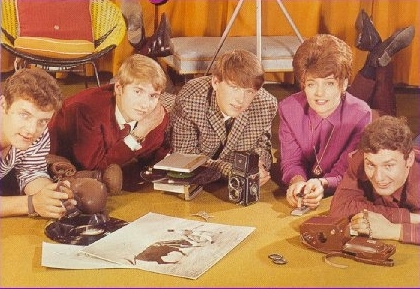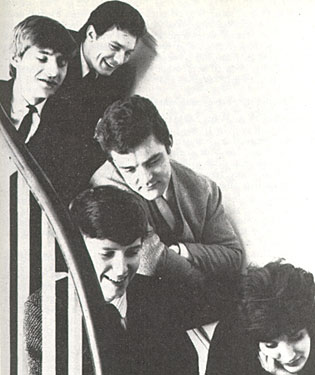| Benjamin renamed the group "The Honeycombs" after the
song of the same name by Jimmie Rodgers, with the red-headed hairdresser,
Honey, a convenient explanation. (See Larkin 2002: 267-68.) |
| July. "Have
I the Right" / "Please Don't Pretend Again" (Pye) UK #1 |
| With the success of "Have I the Right," Howard and Blaikley became the band's managers. |
| October. "Is
It Because" (Howard and Blaikley) / "I'll Cry Tomorrow" (Pye) UK #38 |
| "Eyes" (Howard and Blaikley) / "If You've
Got to Pick a Baby" (Pye) |
| |
| 1965
[MM 23-24, DD 21-22] |
| "Don't Love You No More"
/ "I'll See You Tomorrow" (Pye) |
| April. "Something
Better Beginning" (Davies) / "I'll See You Tomorrow" (Pye) UK #39 |
| August. "That's
the Way" / "Can't Get through to You" (Pye) UK #12 |
| "This Year, Next Year"
/ "Not Sleeping Too Well Lately" (Pye) |

